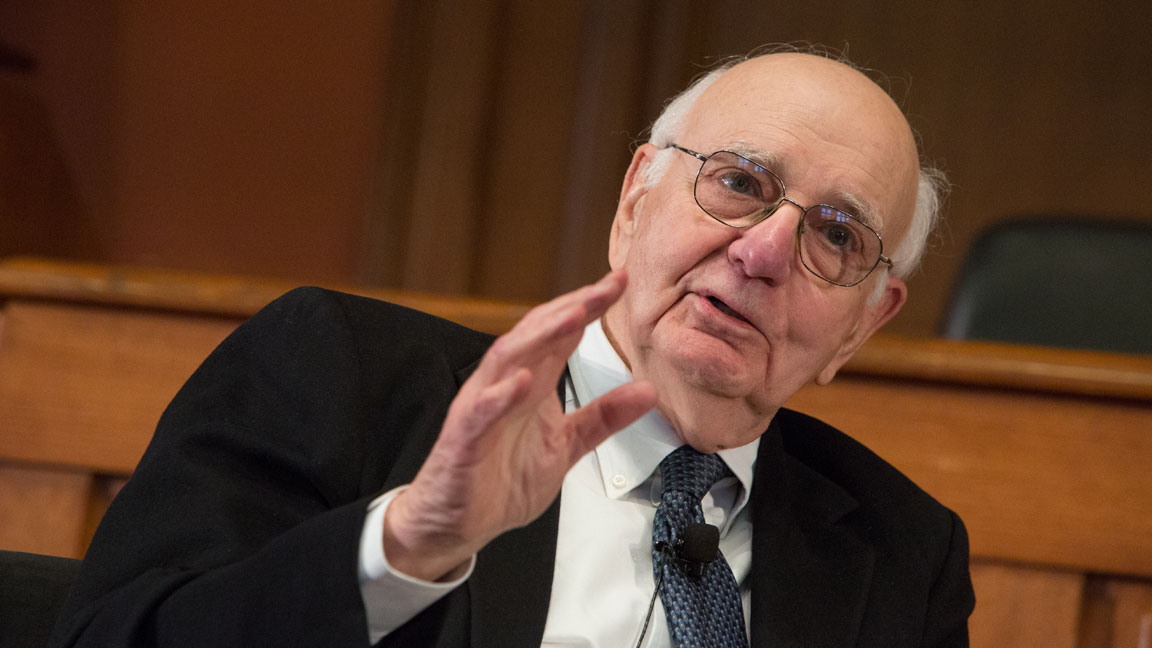
Renowned American economist Paul Volcker is best known for his tenure as Chairman of the Federal Reserve. When he took the reins of the central bank in 1979, the U.S. was mired in a decade-long period of rapidly rising prices and weak economic growth. Volcker, overcoming the objections of many of his colleagues, raised interest rates to an unprecedented 20 percent, drastically reducing the supply of money and credit, and thus setting the stage for a generation of prosperity.
That extraordinary feat was just one pivotal episode in a decades-long career serving seven presidents. In earlier stages of his career, Volcker served as undersecretary of the treasury for monetary affairs during the early 1970s. He was subsequently a member of numerous public policy organizations, including the Japan Society, the Institute of International Economics, and the American Assembly. In recognition of his professional achievements, Volcker was a recipient of numerous honorary doctorates from a number of American and foreign universities.
Much of Volcker's success in economics can be traced back to his early days as a 6'7" freshman on Princeton University's campus in 1945. With his towering stature, he was a natural fit for the basketball team, but with respect to a future career, he was still indecisive and struggled to pick a college major. Fortunately, Princeton offered a relatively new program in the School of Public and International Affairs (later known as the Woodrow Wilson School) that allowed Volcker to select advanced courses à la carte from across the economics, politics, and history departments.
Volcker gravitated to the economics courses, including two taught by eminent Austrian economics scholars, Oskar Morgenstern and Friedrich A. Lutz. During his senior year, he wrote a 250-page thesis titled, "The Problems of Federal Reserve Policy Since World War II," in which he examined the post-WWII policies of the U.S. Federal Reserve System and the state of the U.S. economy at the time. He graduated from Princeton with highest honors, earning a Bachelor of Arts degree in 1949.
Since then, Volcker has become one of Princeton's most esteemed alumni, showing a strong connection with his alma mater over the years. From 1984 to 1988 he served as a trustee of Princeton. He also became a professor at the Wilson School in 1988 and transferred to emeritus status in 1997. In the years leading up to his death, Volcker participated in different public campus events, such as the 2014 panel discussion "Are Financial Institutions Too Big or Too Big to Fail?"
But it was a year later, in 2015, when Volcker made one of his more significant gestures to his alma mater by donating his papers to the Princeton University Library's Department of Rare Books and Special Collections. The collection primarily documents Volcker's time as chairman of the Board of Governors of the Federal Reserve System, where he served under Presidents Jimmy Carter and Ronald Reagan. And given all that Volcker has done for the country, there is little doubt that this collection will be a great source of inspiration for the Princetonians of the future.
